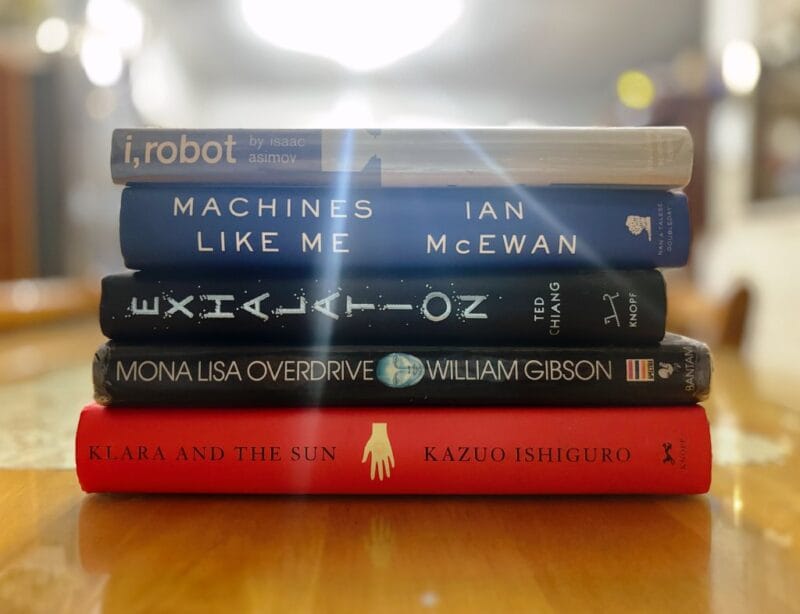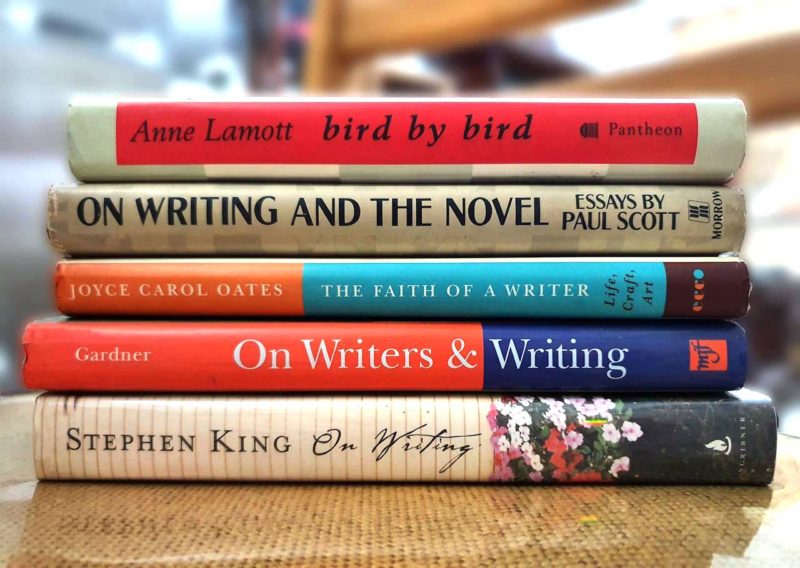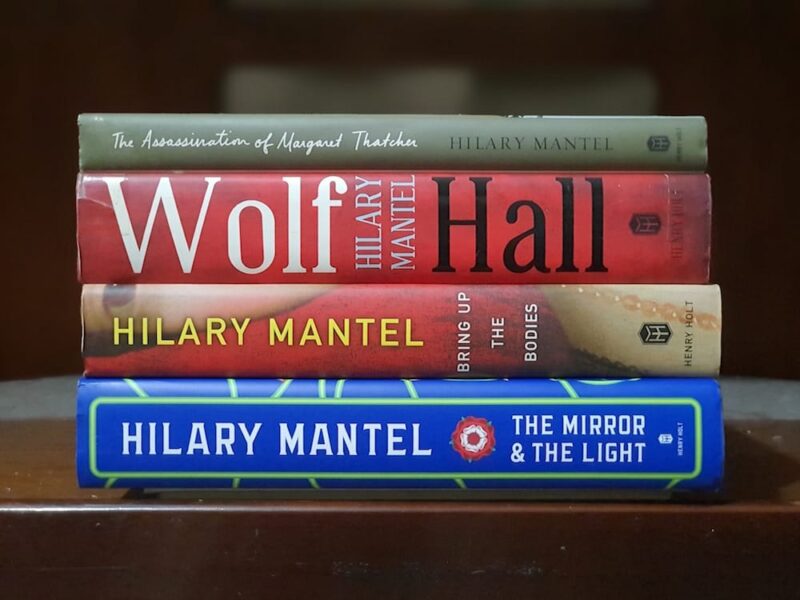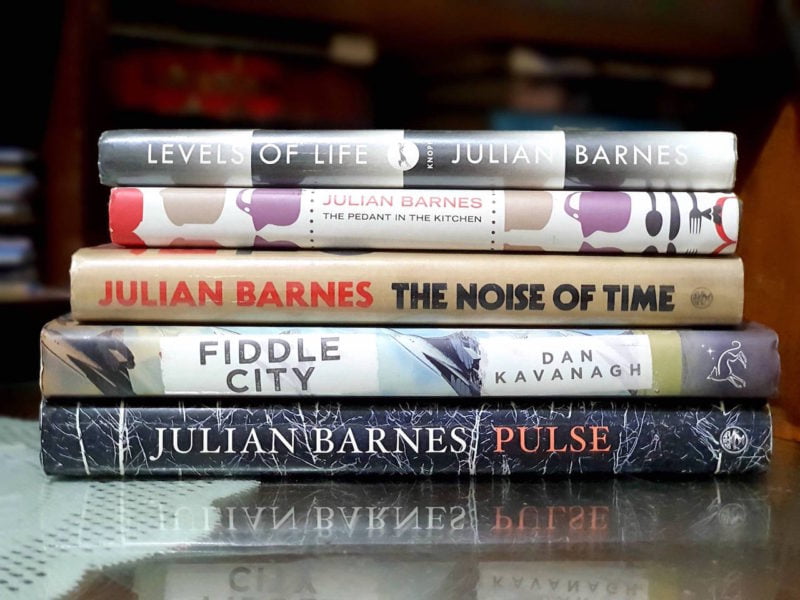Dead Babies (1975)
The book Dead Babies is a darkly comic novel by Martin Amis published in 1975, his second after The Rachel Papers was published in 1973 when he was only 24 years old.
A group of young people in a suburban manor is trying to have a good time, inviting three American guests, to have a weekend of debauchery filled with sex and drugs. The book is divided into three sections, Friday, Saturday and Sunday, with each section subdivided into short chapters detailing what happens to each character in the course of the novel, providing snapshots to their background which give insights into what kind of people they have become.
The book, written in the 70s, is a shock to read, given its depiction of violence and brutality on top of sex and drugs. The novel can be described as a parody of Agatha Christie, and if written past year 2000 would look like an Irvin Welsh or Chuck Palahniuk novel.
Night Train (1997)
The book Night Train is a gender-bending novel about Mike Hoolihan, a female homicide detective who retired from the force but was convinced to investigate an apparent suicide of Jennifer Rockwell, a beautiful wealthy astrophysicist, and the daughter of Hoolihan’s former boss, Tom Rockwell.
The book can be described as a meditation on identity and paranoia. Given the novel’s plot, it first seems to be a whodunit, suspense thriller on the surface, in the vein of Ellroy or Connelly. But don’t let the plot sway you towards the crime fiction genre, the novel is an existential noir, given that it’s written by Martin Amis, a British writer channeling his virtuosic wordplay to create a world of mystery in an unknown American city.
Heavy Water (1998)
This book is a collection of short stories written by the Martin Amis from late 70s to 90s and published mostly in The New Yorker. The title story Heavy Water is about a trip to the Mediterranian by a working-class woman together with her handicapped son, and provides social criticism on a few characters that Mother and her son met in the cruise, by describing on-going entertainment on board while she takes care of her son and their interactions with other cruise passengers.
The short stories were mostly given positive reviews by critics who generally praised Amis’s ingenious storytelling of mixed characters that offer a good sampling of his range as a writer, but most readers at Goodreads, on the other hand, gave the stories mixed reviews, citing their uneven narrative tone in dealing with different subject matters.
Einstein’s Monsters (1987)
The book Einsten’s Monsters is a collection of five short stories thematically linked by its subject matter—the frightening world inhabited by a daily threat of nuclear weapons—with each story dealing with life before, after, and during a catastrophic nuclear holocaust.
As the title suggests, we ourselves are the monsters who partake the evil side of Einstein’s invention that constantly threaten our world. Martin Amis ruminates on the kind of people who could have done the unimaginable, and through his stories reflect on the matter-of-fact dire consequences of one of mankind’s scientific breakthroughs.
Visiting Mrs Nabokov (1993)
The book Visiting Mrs Nabokov is a collection of journalistic essays written by Martin Amis. The essays range from the prosaic to the philosophical and have been described as “fascinating, funny, and thoughtful.” The essays are a tribute to Nabokov’s wife, Vera, who died in 1991.
The title essay is about Amis’s visit to the widow of the famous Russian novelist Vladimir Nabokov. Most of the essays deal with the different aspects of writing with the overall theme about being a writer, the art of writing, and the creative process.
Aside from Nabokov, the essays also deal with other writers such as John Updike, Salman Rushdie, J.G. Ballard, Graham Greene, and Nicholson Baker, with the rest about dart and chess as sports, meeting with Madonna, being on the movie set of RoboCop, and other eclectic journalistic pieces.
The Moronic Inferno (1986)
The Moronic Inferno by Martin Amis is a collection of non-fiction essays published in 1986. The collection consists of 26 essays drawn from previous publications to The Observer, Vanity Fair and other magazines between 1977 and 1985.
The title of the book came from a phrase describing America as a “moronic inferno,” originally labelled by Wyndham Lewis. Aside from the title essay, the rest of the pieces describe Amis’s experiences in America from different angles.
Most essays deal with American writers such as Mailer, Capote, Heller, Burroughs, Vonnegut, Theroux, Roth, and Bellow. There are also write-ups about Gore Vidal, Brian De Palma, Elvis Presley, the evangelical movement, the AIDS epidemic, and other journalism of cultural significance.
Further Reading
Martin Amis, Style Supremacist by Thomas Mallon, The New Yorker
Martin Amis: ‘Style isn’t something you apply later’ by Anthony Cummins, The Guardian
Martin Amis Contemplates Evil by Ron Rosenbaum, Smithsonian Magazine
Featured Author: Martin Amis, from the archives of The New York Times




